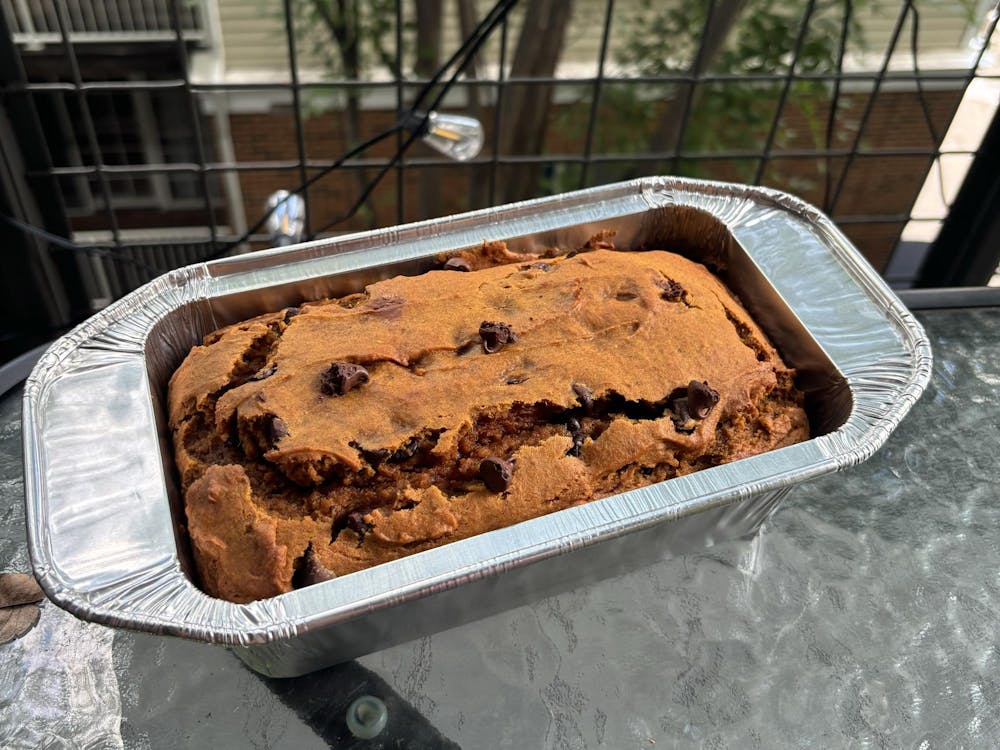The University’s annual Love Your Body Week was held last Monday through Friday and gave students the chance to take a step back and refocus on the importance of loving yourself by promoting a culture of acceptance for all body types.
Love Your Body Week was a collaboration between Hoos Open to Preventing Eating Disorders, the Maxine Platzer Lynn Women’s Center and UYoga. Love Your Body Week is popular among many colleges across the country, like the University of Missouri, who is hosting their event this week, and George Mason University, who held their event in February. Each day of the event at the University consisted of an activity beginning Monday with free donuts and activities at the Whispering Wall.
On Tuesday, students were encouraged to post their favorite body positive blog, quote or account and tag the HOPE Instagram and Facebook. This campaign targeted the stigma behind social media’s extremely toxic environment. With so much potential for social media to promote negativity and judgement, HOPE intended to demonstrate its ability to instead promote a culture of acceptance.
“Social media is good in the sense that it can create more opportunities to see body positivity, but it also can be really dangerous depending on how you engage with it,” said Peaches Sanfilippo, fourth-year College student and assistant to the Women’s Center Body Positive program.
Although HOPE and UYoga were planning to host a body-positive yoga Wednesday, it was ultimately canceled due to rain. Thursday’s event gave out free donuts and hosted activities by the Whispering Wall. Activities included encouraging students to write on sticky notes positive things they do to get through the week.
The “Body Positivi-Tea” brunch Friday was led by the Women’s Center faculty and interns, including Sanfilippo. It included both pastries and an honest, open discussion among the 10 women in attendance about how today’s society imposes an unattainable standard of perfection on females.
“Part of our position in the Women's Center is to unpack what [the perfect woman] means and to strive instead for a healthy ideal where you focus on health, longevity and making sure your body is getting what it needs — not necessarily trying to fit a certain image,” Sanfilippo said.
The leaders of the brunch offered ways to combat the ideas of comparison, body negativity and degrading talk. They suggested various introspective exercises to address the personal conflict as well as strategies for interaction with others to combat societal stigmas.
“I actually have a sign in my kitchen, and it hangs on my fridge [and] says ‘body positive zone,’” Sanfilippo said. “It says ‘no food policing,’ ‘no body shaming,’ ‘no fat talk,’ ‘no skinny shaming’ and just a couple different things.”
The brunch is always held the Friday of Family Weekend to encourage students to bring their parents.
“I think parents — regardless of their intention — have a huge influence [on] how individuals, and especially young women, feel about themselves,” Sanfillipo said. “Having a really positive influence from parents can exacerbate the positive effects of all the things we know to be helpful.”
The Women’s Center hopes that by including families in the conversation, students can break the stigma surrounding mental health discussions and overcome generational differences between parents and children that can unknowingly propagate unhealthy body images.
“Body positivity looks different for everyone,” first-year College student Rosemary Faircloth said. “[Be] around those people that make you feel good in what you are wearing and support you in what you are doing.”
College students are often berated by big life decisions on top of work, classes and learning to live independently. This constant stress can prove detrimental to one’s self-care and self-love. One example of a stressor is the misinterpretation of the infamous “freshman 15.”
“It’s not actually that bad to gain 15 pounds, but [people] make it sound like it is something that is the end of the world,” said Lara Demir, first-year College student and secretary of HOPE. “This … adds on to the stigma surrounding eating and leads to more unhealthy thinking and eating disorders.”
While the focus of body positivity is often directed at women, Love Your Body Week highlighted that male body consciousness should be discussed as well. Just like women, men experience judgement, embarrassment and self-consciousness.
“We know that research shows that women have higher rates of being affected in eating disorders and serious body issues,” Sanfilippo said. “However, the societal pressure … [reflects] a constant paradox of ‘enough’ but ‘not too much,’ and I think that applies to everybody.”
Self-care can often be the first thing that a college student forgets in order to make time for other priorities. However, Love Your Body Week encouraged students to treat their bodies with love and respect — especially as college students in a period of growth and learning.
“U.Va. is definitely an environment where there is lots of competition, and it ends up translating to a lot of individuals’ personal lives too,” Sanfilippo said. “We are often just trying to survive through this semester and neglect our bodies and neglect our health.”
With resources, activities and uplifting discussions, Love Your Body Week promoted a healthy idea of self-love, teaching students how to not only survive but thrive.





